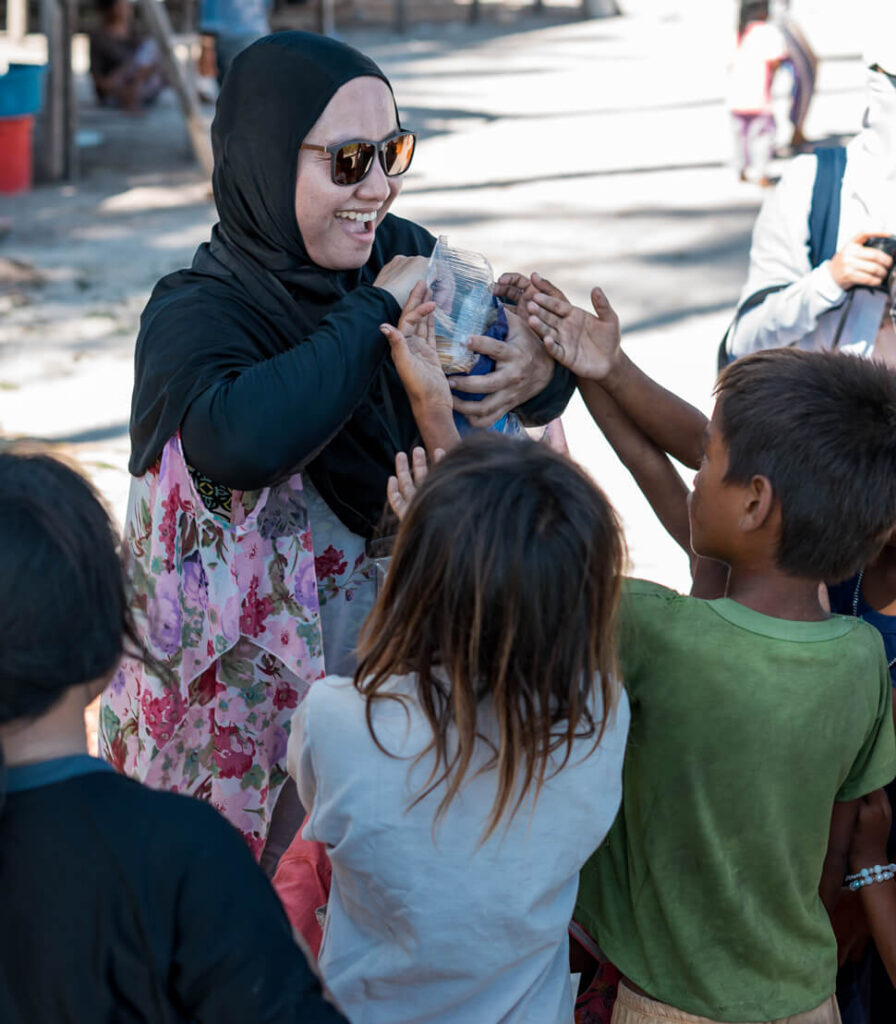
The large-scale Israeli military attack on the Gaza Strip enters its 407th day today, Monday, November 11, amid an unprecedented rise in the number of victims, more than 80% of whom are children and women, amidst humanitarian conditions that exceed catastrophic as a result of the displacement of nearly 90% of the Strip’s population of 2.3 million people; due to successive Israeli displacement orders, and the occupation’s continued commission of war crimes, crimes against humanity, and the most serious crime, which is the crime of genocide, the chapters of which began to unfold since October 7, 2023.
Israel, the occupying power, insists on continuing its military attacks against civilians, civilian objects and civilian property as part of the crime of genocide, two days after the International Court of Justice convened to consider a case filed by the Republic of South Africa, which includes a request for the court to take interim measures to protect the Palestinian people in the Gaza Strip from further harm, ensure Israel’s compliance with the Genocide Convention, and immediately cease its military operations in the Gaza Strip.
Palestinian human rights organizations, the Palestinian Center for Human Rights, Al Mezan Center and Al Haq, affirm that Israel’s continued commission of the crime of genocide in Gaza, with American military and diplomatic support, in addition to the support of a number of European countries, and in light of the price paid by civilians in Gaza as a result, requires urgent action by the international community to immediately cease fire, take all measures to ensure that Israel does not continue to commit its crimes, and protect civilians, in order to achieve justice and adhere to international laws.
Field monitoring by our teams and crews shows that the Israeli occupation forces, during the sessions of the International Court of Justice in the past days, including before, during and after the sessions, continued to launch their most criminal military attacks against the civilian population of the Gaza Strip, in a state of indifference and stubbornness towards international justice.
On the level of crimes of killing Palestinian women and men, the occupation forces continued to bomb homes with their residents inside, and to bomb gatherings that include thousands of displaced people, at a daily rate of about 135 martyrs and 350 wounded, which raised the death toll, since October 7, until the afternoon of November 11, 2024, to 24,922 martyrs, and 60,317 wounded, 80% of whom are women and children, according to reports from the Ministry of Health and studies by international human rights organizations.
Among the martyrs were 10,400 children, 7,100 women, 337 medical personnel, 45 civil defense personnel, and 117 journalists, according to government agencies in Gaza.





Our teams confirm that the actual number of martyrs is much higher than the number announced by the Ministry of Health, given the large number of victims, numbering in the thousands, under the rubble or in the streets. In many cases, families are forced to bury them because they cannot be transported to hospitals. Among these, there are large numbers whose bodies have decomposed, which threatens the spread of diseases and health epidemics, in addition to the violation of the dignity of the dead.
The Israeli attacks have also caused serious physical and psychological harm to Palestinians in Gaza, including children. Among the injured, there are thousands of children who have had one or more limbs amputated, large numbers who have lost eyes, and there are at least 7,000 serious cases that require travel abroad for treatment, and the occupation continues to obstruct their travel with its measures.
The suffering of about 2 million displaced people continues, hundreds of thousands of whom were forced to flee more than once as a result of displacement orders and the ongoing Israeli bombardment, also resulting from the expansion of the ground attack by the occupation forces, especially in the central governorate and Khan Yunis.
This suffering has become indescribable and represents a stigma on the world’s forehead, as residents are forced to move from one place to another without luggage or food supplies amidst rain and bitter cold, and are crowded into limited geographical areas, without health care at a time when infectious diseases and epidemics are spreading, and they face hunger and thirst, while Israeli bombing pursues them in their tents and shelters.
Our organization points to the catastrophic reality experienced by hundreds of thousands of displaced people who remained in the northern Gaza Valley, where the occupation forces are preventing sufficient aid from reaching them, and have only allowed a limited number of trucks to pass, and have fired on civilians while they were trying to reach those trucks to receive some aid from them in the past days.
Despite the withdrawal of the occupation forces from various areas of Gaza and its north, they continue to carry out artillery and air strikes, causing civilian casualties.
The occupation forces are still preventing hundreds of thousands of displaced persons from the northern Gaza Strip, who were displaced to the south, from returning to their residential areas, which witnessed almost total destruction, affecting more than 70% of the buildings and infrastructure. Some large towns and neighborhoods were completely destroyed, such as the town of Beit Hanoun and neighborhoods in Jabalia, Shuja’iyya, and Rimal in Gaza.
Most of the population of the Gaza Strip suffers from poor access to health care as a result of deliberate Israeli attacks on health facilities.
The overcrowding of hundreds of thousands of displaced persons in the southern Gaza Strip has led to the spread of several epidemic diseases, and seasonal diseases have become a major threat to the lives of residents in light of the collapse of the health system in the northern and central areas of the Gaza Strip, noting that some of the diseases that were detected in the shelters of the displaced were eradicated globally in the last century.
According to medical sources, about 626 thousand disease cases were monitored in the southern Gaza Strip, with the difficulty of obtaining epidemiological statistics in the northern Gaza Strip.
It is noteworthy that 30 hospitals out of 36 in the Gaza Strip have gone out of service due to bombing, destruction, or lack of capabilities. Currently, all the displaced people in the north of the Gaza Valley are suffering from the actual lack of health services, despite the partial re-operation of some hospitals and health centers.
The Israeli attack destroyed or disabled about 80% of primary health care clinics in the Gaza Strip. Only 7 clinics remain operational, while 53 clinics are out of service, which exacerbates the spread of diseases and limits their fight in shelters.
On January 12, 2024, telecommunications and internet networks were cut off from most areas of the Gaza Strip, for the seventh time since the start of the Israeli attack. Yesterday, Saturday, January 13, 2024, the occupation targeted a Palestinian Telecommunications Company crew while they were trying to carry out maintenance work on the telecommunications network in Khan Yunis, where the telecommunications company’s car was directly targeted by a shell, according to the company’s statement, which led to the martyrdom of two crew members, Nader Abu Hajjaj and Baha al-Rayes.
The interruption of communications and internet networks exacerbates the suffering of the population as they are unable to communicate with each other or with the outside world to convey news of the Gaza Strip and expose the crimes of the occupation. It also hinders the ability of ambulance and civil defense crews to receive communications about targeted and critical areas, thus hindering the ability of crews to provide service in a timely manner.
As a result of the continued Israeli attack, all the components of life in the Gaza Strip were completely destroyed. Educational life came to a halt and the Israeli raids completely destroyed (95) schools and universities, and (295) schools and universities were partially destroyed, according to government agencies in Gaza.
The Israeli raids destroyed 145 mosques completely, and 243 mosques partially, and destroyed 3 churches targeted by the occupation, in addition to many archaeological and historical sites, cultural landmarks, and most of the infrastructure in the Gaza Strip.
Economic, industrial and commercial life was also disrupted, and families became concerned about providing food and water for themselves and their children.
Our institutions believe that this systematic destruction aims to inflict serious physical and psychological harm, and to deliberately subject living conditions, with the aim of destroying the Palestinians as a national group, in part, as such, as evidenced by statements issued by official Israeli bodies and figures expressing the intention to do so.
In light of all this, we renew our call on the international community to take serious and immediate action to stop the Israeli military attack on the Gaza Strip, and to compel Israel, the occupying power, to stop the policy of targeting civilians and civilian objects as a tool of revenge, punishment and political pressure, and to take effective measures to ensure accountability for the war crimes, crimes against humanity and the crime of genocide committed by the Israeli occupation forces in the occupied Palestinian territory.
Our institutions urge the International Court of Justice to urgently take measures to ensure that Israel does not continue to commit the crime of genocide, and to protect civilians and civilian objects. Our institutions also urge countries that support justice to declare their support and submit requests to the court to support the Republic of South Africa’s lawsuit at the International Court of Justice.
Our institutions call on the Prosecutor of the International Criminal Court to expedite practical measures to complete the investigation into the crimes committed, including mass killings against civilians, including women and children, and to reveal the truth and take the next steps, especially since the victims in Palestine have been waiting a long time for justice and redress.
We renew our call on the international community to ensure the end of the occupation, the dismantling of the Israeli settler colonialism and apartheid regime, the abolition of all discriminatory and inhumane laws, policies and practices against the entire Palestinian people, and the empowerment of the Palestinian people to exercise their right to self-determination and the unconditional return of refugees.

Donations are allocated to provide direct humanitarian support, including food, healthcare, and education, as well as support for community empowerment projects.
Yes, donors can choose to allocate their donations to specific areas such as education, health, or emergency relief as they wish.
We operate transparently and follow accurate documentation methods to ensure that aid reaches those who deserve it, and regular reports on aid distribution are available.